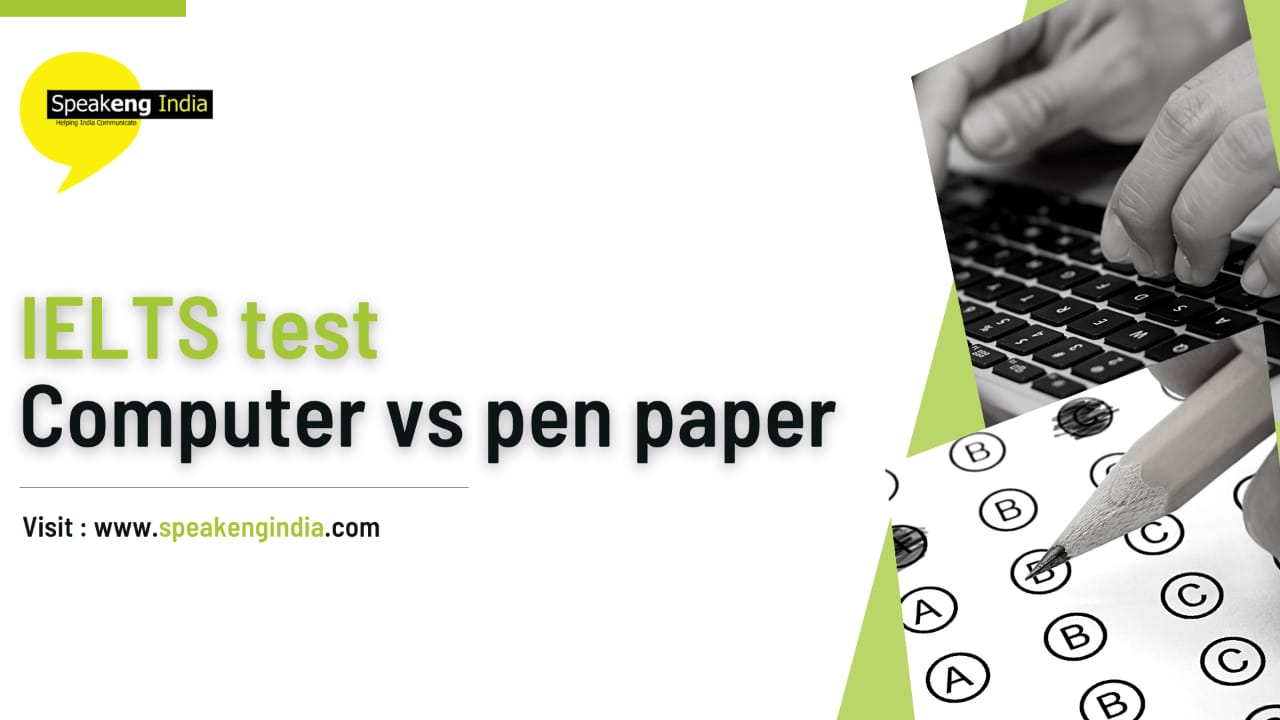IELTS- The International English Language Testing System is an international standardized test of English language proficiency for non-native English language speakers. It is mainly used as a benchmark to test the language skills of people who want to migrate to an English-speaking land for various purposes like academics or professional assignments. IELTS is recognized by most of the academic institutions and professional organizations in Europe, New Zealand, Australia, Canada, and the United States.
IELTS Exam is of two kinds. IELTS Academic for students who wish to migrate for further studies and IELTS General Training for professionals and others who wish to migrate for any general purpose.
Both kinds of IELTS consist of four modules – Reading, Writing, Speaking, and Listening. In each of these modules, one can receive a score of 1-9 based on performance. The final score is an average of these four scores.
IELTS is taken via two modes: Online (on a computer) and Offline ( the traditional pen and paper-based method). Let’s see a comparison between them:
- The exam environment is considerably different for both exams. For online exam, it’s usually a small center with a few applicants and each one has their own computer assigned, while in the offline exam the center is usually crowded with around 100-150 applicants at a center.
- The exam time limit offered for both exams is the same. Hence it has a major influence according to the candidate’s writing vs. typing ability. One needs to manage their time accordingly.
- Convenience plays a major role in deciding the kind of exam you want to opt for. Online is always more convenient anyways. In the writing section, it’s easier to edit your answers on a computer rather than on paper, keeping a track of word count also is easier on a computer. In the listening test, it’s more convenient in online mode since you are provided with your own headphones and you can listen more clearly. While in offline mode, the audio is played on a common speaker which can be unclear many times.
- There’s a difference in the application fees for both the exams, however, it’s very minor.
- For the online test, your typing speed has to be decent and without typos. If you don’t trust your handwriting and think it’s too bad and illegible, you should definitely opt for the online test.
- Online and offline modes of the exam are also different in their TAT for results. The online exam involves just uploading the sheets on the Cambridge marking server. Thus the results are fast and come in just 3-5 days after the exam. On the other hand, in the offline exam, the answer sheets need to be sent to the Cambridge marking facility physically. Hence this takes a longer time, usually 2-3 weeks to announce the results.
- For years, IELTS was conducted in offline mode across various centers. Now they have introduced the computer-based test which is available at only select centers.
To conclude, the discussion of Online vs Offline does not define your performance in the test or the difficulty of the test. It’s just about what is more convenient for you, to have the best possible test ambiance that brings out your best performance.
At Speakeng, we provide complete training on the IELTS exam through our study materials and best-in-class trainers. Join Speakeng today and ace IELTS!
– Vaishali Pandey




